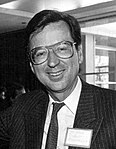This article needs additional citations for verification. (November 2012) |
| |||||||||||||||||||||||||||||||||||||||||||||||||||||||||||||||||||||||||||||||||||||||||
110 seats in the 31st National Assembly of Quebec 56 seats were needed for a majority | |||||||||||||||||||||||||||||||||||||||||||||||||||||||||||||||||||||||||||||||||||||||||
|---|---|---|---|---|---|---|---|---|---|---|---|---|---|---|---|---|---|---|---|---|---|---|---|---|---|---|---|---|---|---|---|---|---|---|---|---|---|---|---|---|---|---|---|---|---|---|---|---|---|---|---|---|---|---|---|---|---|---|---|---|---|---|---|---|---|---|---|---|---|---|---|---|---|---|---|---|---|---|---|---|---|---|---|---|---|---|---|---|---|
| Turnout | 85.27% ( | ||||||||||||||||||||||||||||||||||||||||||||||||||||||||||||||||||||||||||||||||||||||||
| |||||||||||||||||||||||||||||||||||||||||||||||||||||||||||||||||||||||||||||||||||||||||
 Popular vote by riding. As this is an FPTP election, seat totals are not determined by popular vote, but instead via results by each riding. Click the map for more details. | |||||||||||||||||||||||||||||||||||||||||||||||||||||||||||||||||||||||||||||||||||||||||
| |||||||||||||||||||||||||||||||||||||||||||||||||||||||||||||||||||||||||||||||||||||||||
The 1976 Quebec general election was held on November 15, 1976 to elect members to National Assembly of the Province of Quebec, Canada. It was one of the most significant elections in Quebec history, rivalled only by the 1960 general election, and caused major repercussions in the rest of Canada. The Parti Québécois, led by René Lévesque, defeated the incumbent Quebec Liberal Party, led by Premier Robert Bourassa.
The Parti Québécois's campaign focused on providing good government, in contrast the many scandals that had plagued the Liberals since 1973, The PQ's stated goal of achieving independence for Quebec from Canada was portrayed as only secondary, but the election of a sovereigntist government in Quebec caused great upset in the rest of Canada and led to extensive discussions about reforming the Canadian Confederation and finding ways of accommodating Quebec.
The Parti Québécois used its term in office to introduce numerous bills to implement its agenda. The first bill introduced in the new session of the National Assembly was legislation to confirm French as the sole official language of Quebec, and to implement measures to make this a social reality. The legislative number of this bill, "Bill One," was intended to signify the importance of the bill for the new government. The bill was withdrawn and significantly altered, however, and was eventually re-introduced as "Bill 101" (or la Loi 101 in French), also known as the Charter of the French Language. With some modifications, the Charter of the French Language remains in effect today and has shaped modern Quebec society in far-reaching ways.
The 1976 election also set the stage for the 1980 Quebec referendum on the PQ's proposal for political independence in an economic union with the rest of Canada called sovereignty-association. The proposal was soundly defeated in the referendum.
Bourassa had called the election after only three years, well before the maximum possible term of five years. It is possible that he may have counted on a boost from his successful rescue of the 1976 Summer Olympics in Montreal after cost overruns and construction delays by the Montreal municipal government of Mayor Jean Drapeau. If so, he badly miscalculated. He not only lost the election, but was resoundingly defeated in his own riding by a PQ challenger. Bourassa resigned as Liberal leader, and his political career appeared to be over. He left Quebec and took up teaching positions in the United States and Europe. However, he later made a remarkable comeback in the 1985 general election.
The once-powerful Union Nationale made a modest comeback after being evicted from the legislature three years earlier. It won 11 seats under Rodrigue Biron and, for the first time, won significant support from some anglophone voters. An anglophone UN member, William Shaw was elected to the National Assembly. However, this proved to be the party's last hurrah. Successive floor-crossings, retirements, and resignations reduced the UN to only five members during the term. The party lost all of those remaining seats five years later, never to return; it would continue to exist nominally until 1989.
© MMXXIII Rich X Search. We shall prevail. All rights reserved. Rich X Search


